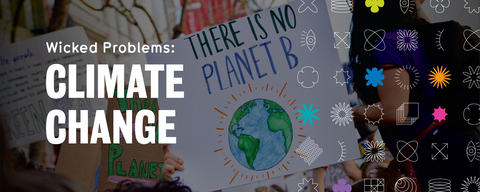


Interdisciplinary Grad Student Designed and Led “Wicked Problem” Courses
Project Goals/Deliverables
Advance our PhD candidates’ professional development by engaging them in curricular design, development and implementation, with appropriate mentorship
Enhance our PhD candidates’ academic goals and personal well-being by creating communities of scholars
Provide Waterloo’s undergraduate students with additional course offerings with foci in critical, contemporary issues that spans disciplinary boundaries
Expose undergraduate students to (student) research and researchers, potentially motivating future studies
Develop a process and pathway for interdisciplinary course development
Create re-usable digital assets
Project Team
Brian Laird, Associate Professor (School of Public Health Sciences) | Associate Dean, Graduate Studies (Faculty of Health)
Bradley Pomeroy, Associate Professor (School of Accounting and Finance) | Associate Dean, Graduate Studies (Faculty of Arts)
Project Topics
- Interdisciplinary
- Undergraduate Students
- Graduate Students
- beta project
Connect with the Wicked Problem team!
Inquiries about the Wicked Problem course offerings or the project more broadly can be directed to tii@uwaterloo.ca
Project Summary
This project aims to bring together a team(s) of PhD candidates to design, develop and offer a course related to contemporary “wicked problems” that catalyzes each PhD candidate’s research and disciplinary expertise while also offering them a meaningful teaching experience. The teaching team will receive mentorship and support with regard to course conception, design and integration by those with disciplinary and pedagogical expertise via the TII. The course will be offered to senior undergraduate students across the university as an elective, and collectively creates an interdisciplinary construct that fosters learning and an integration of knowledge, methods and ways of knowing that could not be achieved within a single disciplinary approach.
Past Wicked Problem Courses
Project Artifacts
-
Wicked Problem of Climate Change Course Outline (Winter 2023)Check out the course outline for the first Wicked Problem course offering
-
UW Imprint Article (July 13, 2022)UW introduces new climate change course
-
Wicked Problem of Climate Change SymposiumWinter 2023
-
UW Imprint Article (June 3, 2024)Inside ARTS 390: Wicked Problem of Climate CHange
-
Teaching Innovation Incubator Article (August 8, 2024)In case you missed it: The Wicked Problem of Precarity Symposium
-
Wicked Problem of Accessibility: Instructor RecruitmentFall 2024
Project Updates
The Wicked Problem of Accessibility Symposium
Learn about the incredible posters showcased at the Wicked Problem of Accessibility symposium.
The Wicked Problem of Accessibility Course Launches
Announcing the launch of the Wicked Problems of Accessibility course for the Spring 2025 term!
Introducing the Wicked Problem of Accessibility Instructor Team!
The Teaching Innovation Incubator is excited to announce the team of three PhD students selected to teach the Wicked Problem of Accessibility in Spring 2024.